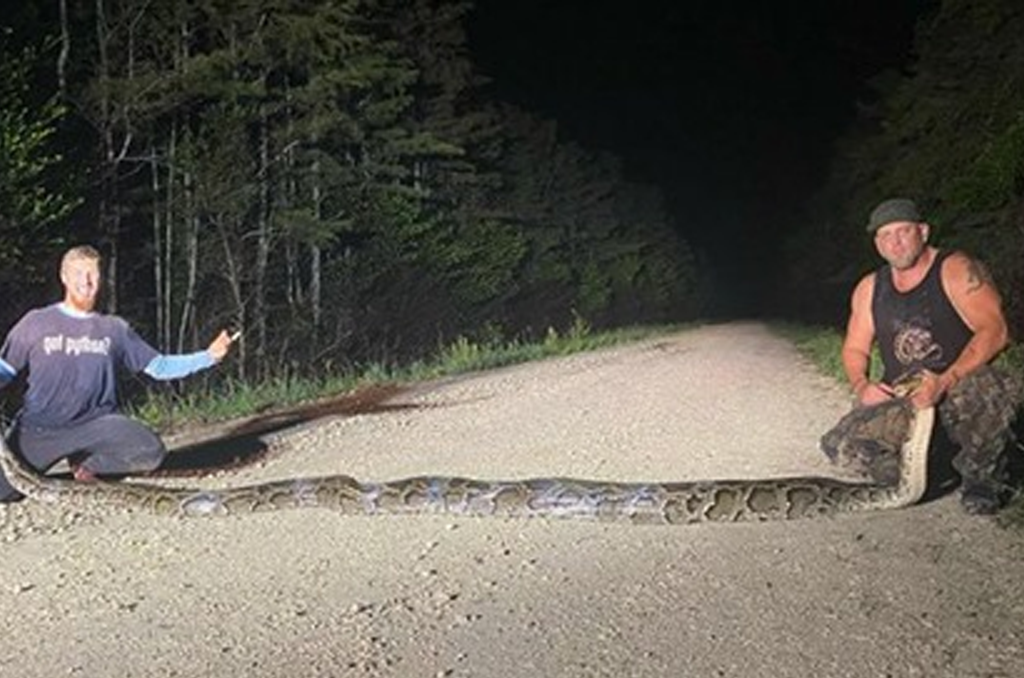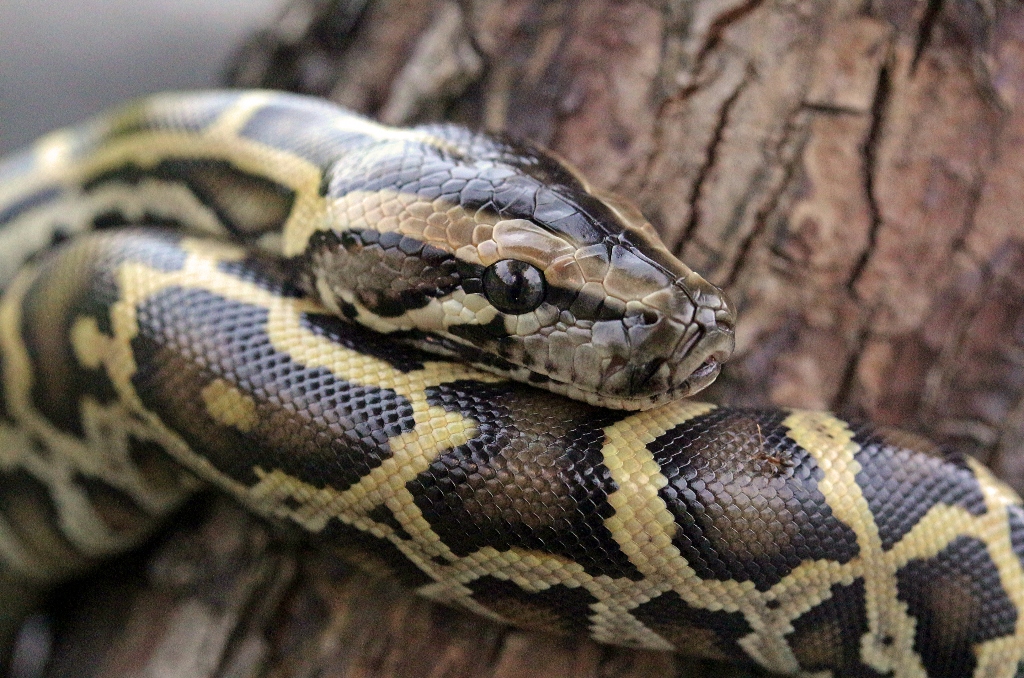Burmese Python. Photo: Vince Adam/Shutterstock.com
A new, exotic dish may soon be on your local restaurant’s menu—if they are safe to eat.
Florida has had problems with combating invasive species for years due largely in part to its favorable climate, lush ecosystem, and the exotic pet trade. But no species has wrecked the ecosystem nearly as much as the Burmese python.
The Burmese python was first widely introduced in Florida in 1992, thanks to Hurricane Andrew. The costliest storm in Florida’s history forced captive Burmese pythons to escape and flourish in the favorable wetlands of the state.
Because of their expanding population and significant negative ecological impact, wildlife experts and agencies have ruled it legal to hunt and kill the species and even pay people to do so.
Now, the Florida Fish and Wildlife Conservation Commission (FWC) and the Florida Department of Health have formed an unlikely alliance to investigate the potential health risks of eating the invasive predator. If Florida scientists confirm the deadly creature is safe to eat: don’t be surprised to find python on your local restaurant’s menu.
FWC spokeswoman Susan Neel told CNN, “It is early on in the process for the mercury study. We are currently in the tissue collection stage of the project, and Covid has pushed our timeline back a bit. The plan is to have most of these samples come from pythons that are caught by our contractor program.”
The mercury level study is currently being funded by the South Florida Water Management District and is being led by The Python Elimination Program. To date, the program has successfully removed over 6,000 invasive snakes from the Everglades.
According to Mike Kirkland, manager of the Python Elimination Program, mercury is a naturally occurring element with “high levels” in the Everglades region. The element is especially abundant; the higher you climb the food chain due to its bioaccumulation tendency. Because pythons have no real predator or opposition in the Everglades, the snake is naturally susceptible to higher mercury levels.
While Kirkland believes the testing will discourage people from eating the snake, he didn’t rule out the potential of deeming them safe to put on the dinner table to help control their population.
Back on Oct. 2., snake trappers Kevin Pavlidis and Ryan Ausburn captured a record-long 18-foot and 9-inch Burmese python just 35 miles west of Miami in the Everglades.

Donna Kalil, one of the python program’s hunters, believes the predator makes for a delicious meal when they are safe to consume. According to Kirkland, she is the first female hunter in the program and has successfully captured and removed 473 snakes. Not to worry, her python taste trials have been safe. The smaller pythons she has caught (roughly 7 feet) undergo a mercury test via kits sold online, and if safe, she makes a mean snake jerky or stew out of the white meat.
https://www.instagram.com/p/CIrZMsHsLS7/
Traditionally, Kalil will use a pressure cooker to make the meat soft and tender and later adds chili, stir fry, or pasta sauce.
She believes that if scientists rule the predator safe to consume, it would greatly help with the removal process in the Everglades and get more people involved.
Pythons pose a huge threat to local wildlife and pets in Florida, and although Kalil finds the creatures to be “magnificent,” she also recognizes the serious threat they pose to the state’s ecosystem.
Are you interested in Florida’s nature? For stories like this and much more: Florida Insider is dedicated to educating, entertaining and informing its readers about everything Florida. Easy to read content at the palm of your hands and covering the stories that matter.

